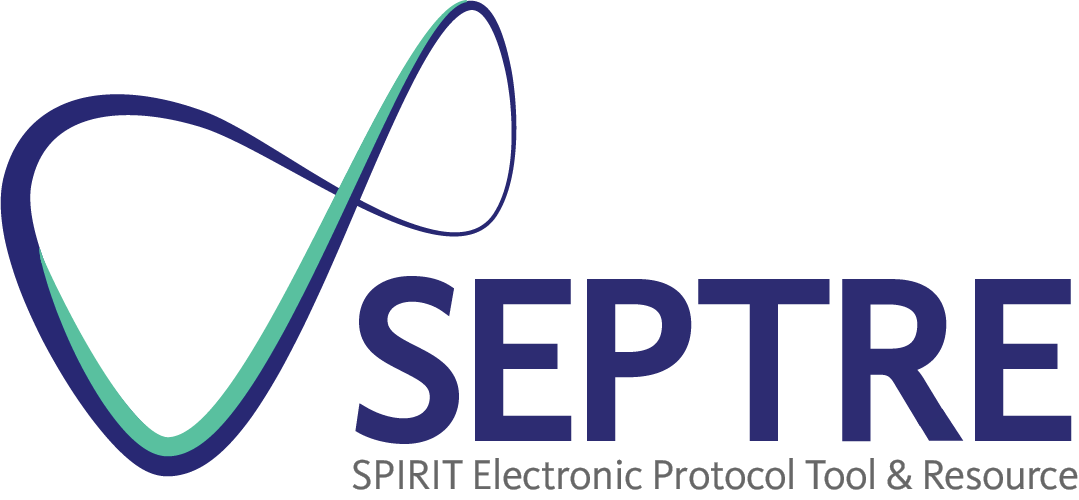Item 21a: Composition of data monitoring committee (DMC); summary of its role and reporting structure; statement of whether it is independent from the sponsor and competing interests; and reference to where further details about its charter can be found, if not in the protocol. Alternatively, an explanation of why a DMC is not needed.
Example
“Appendix 3. Charter and responsibilities of the Data Monitoring Committee
A Data Monitoring Committee (DMC) has been established. The DMC is independent of the study organisers. During the period of recruitment to the study, interim analyses will be supplied, in strict confidence, to the DMC, together with any other analyses that the committee may request. This may include analyses of data from other comparable trials. In the light of these interim analyses, the DMC will advise the TSC [Trial Steering Committee] if, in its view:
a) the active intervention has been proved, beyond reasonable doubt*, to be different from the control (standard management) for all or some types of participants, and
b) the evidence on the economic outcomes is sufficient to guide a decision from health care providers regarding recommendation of early lens extraction for PACG [primary angle closure glaucoma].
The TSC can then decide whether or not to modify intake to the trial. Unless this happens, however, the TSC, PMG [project management group], clinical collaborators and study office staff (except those who supply the confidential analyses) will remain ignorant of the interim results.
The frequency of interim analyses will depend on the judgement of the Chair of the DMC, in consultation with the TSC. However, we anticipate that there might be three interim analyses and one final analysis.
The Chair is Mr D.G.-H., with Dr D.C., and Professor B.D. Terms of reference for the DMC are available on request from the EAGLE [Effectiveness in Angle Closure Glaucoma of Lens Extraction] study office.
* Appropriate criteria for proof beyond reasonable doubt cannot be specified precisely. A difference of at least three standard deviation [sic] in the interim analysis of a major endpoint may be needed to justify halting, or modifying, such a study prematurely [Reference X].” 325
Explanation
For some trials, there are important reasons for periodic inspection of the accumulating outcome data by study group. In principle, a trial should be modified or discontinued when the accumulated data have sufficiently disturbed the clinical equipoise that justified the initiation of the trial. Data monitoring can also inform aspects of trial conduct, such as recruitment, and identify the need to make adjustments.
The decision to have a data monitoring committee (DMC) will be influenced by local standards. While certain trials warrant some form of data monitoring, many do not need a formal committee,326 such as trials with a short duration or known minimal risks. A DMC was described in 65% (98/150) of cancer trial protocols with time-to-event outcomes in Italy in 2000-5,327 and in 17% (12/70) of protocols for Danish randomised trials approved in 1994-5.6 About 40% of clinical trials registered on ClinicalTrials.gov from 2007-2010 reported having a DMC.328 The protocol should either state that there will be a DMC and provide further details, as discussed below, or indicate that there will not be a DMC, preferably with reasons.
When formal data monitoring is performed, it is often done by a DMC consisting of members from a variety of disciplines.254;329 The primary role of a DMC is to periodically review the accumulating data and determine if a trial should be modified or discontinued. The DMC does not usually have executive power; rather, it communicates the outcome of its deliberations to the trial steering committee or sponsor.
Independence, in particular from the sponsor and trial investigators, is a key characteristic of the DMC and can be broadly defined as the committee comprising members who are “completely uninvolved in the running of the trial and who cannot be unfairly influenced (either directly or indirectly) by people, or institutions, involved in the trial.”254 The DMC members are usually required to declare any competing interests (Item 28). Among the 12 trial protocols that described a DMC and were approved in Denmark in 1994-5,6 four explicitly stated that the DMC was independent from the sponsor and investigators; three had non-independent DMCs; and independence was unclear for the remaining five protocols.
The protocol should name the chair and members of the DMC. If the members are not yet known, the protocol can indicate the intended size and characteristics of the membership until further details are available. The protocol should also indicate the DMC’s roles and responsibilities, planned method of functioning, and degree of independence from those conducting, sponsoring, or funding the trial.254;330;331 A charter is recommended for detailing this information331; if this charter is not appended to the protocol, the protocol should indicate whether a charter exists or will be developed, and if so, where it can be accessed.
| 20c: Analysis population and missing data | 21b: Interim analysis |

